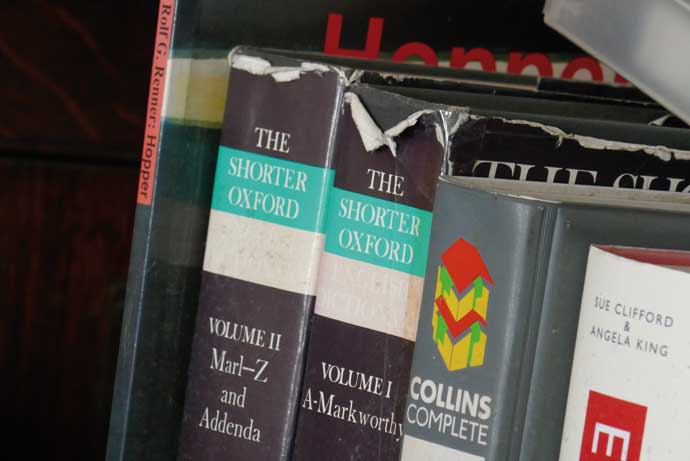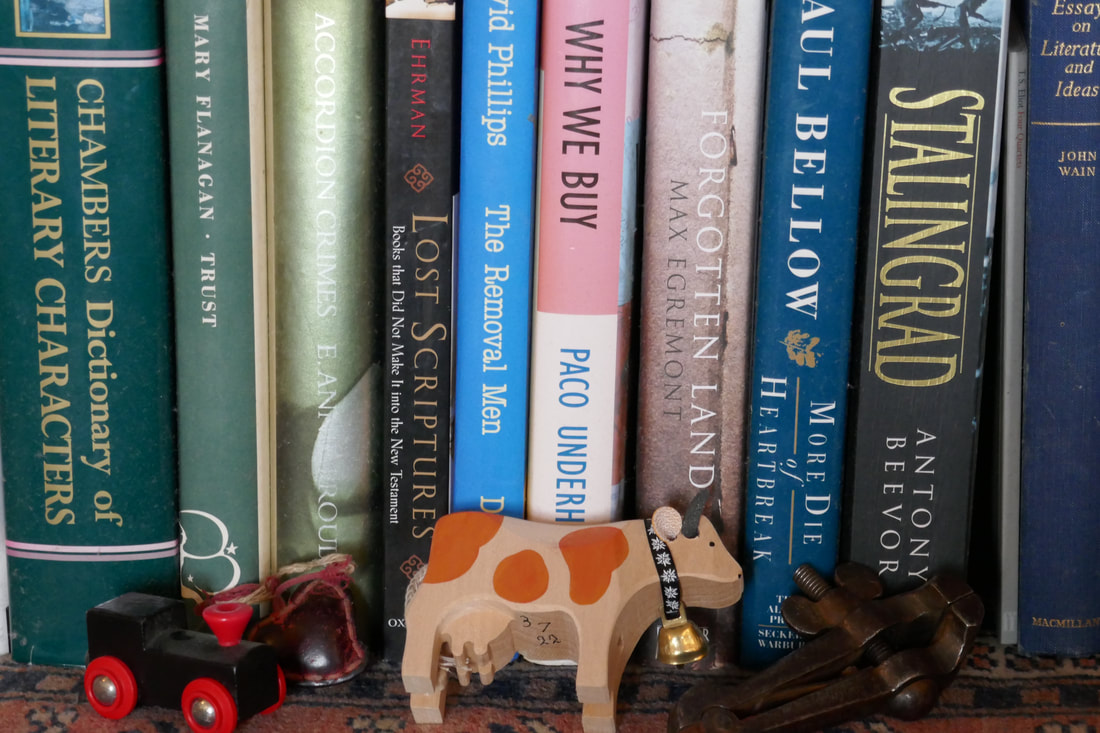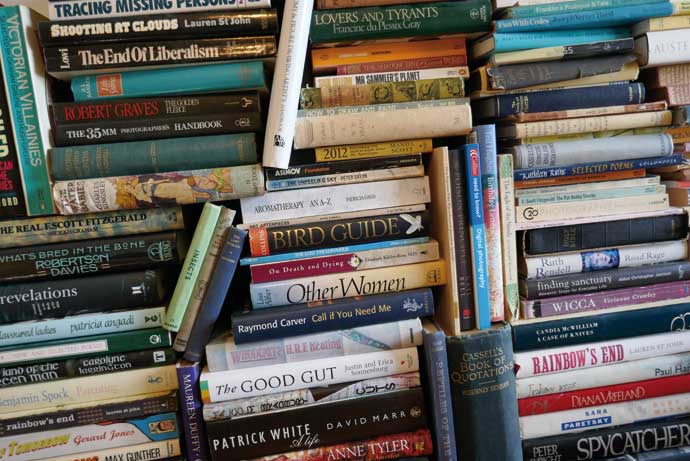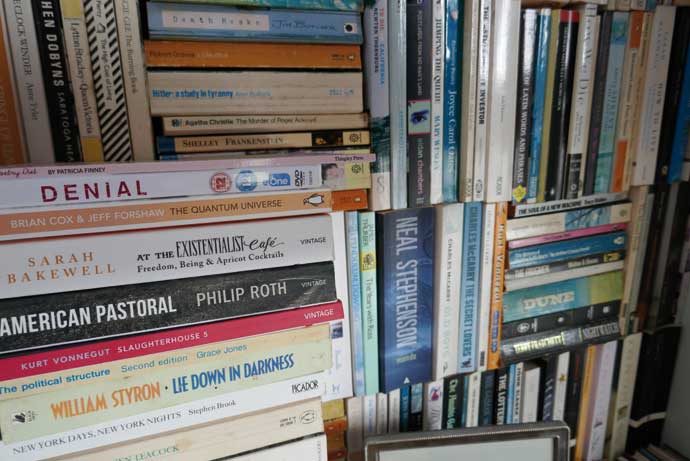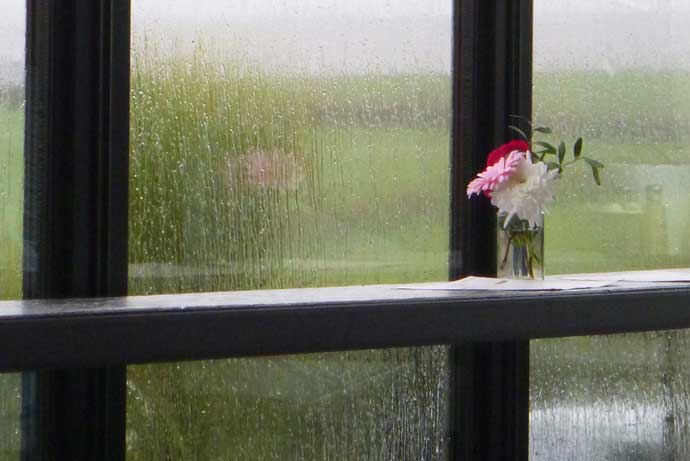There would be canapes, and as the finale, a lunch. A gift, usually a paperweight but sometimes a pen, with the name of the day’s development printed (indelibly) on the side, and a glossy press pack bulging with press releases that could be copied out and pictures that could be used to illustrate articles. When we got to the day’s show flat, we would troop around the rooms and out onto the balcony, taking it in turns to ask the regular questions about projected rental income, outgoings, membership fees for the leisure club downstairs, travel connections to airports and the City.
Technicolour yawn. Then we would go and have lunch. After lunch, the PRs managing the trip would make very sure that we had hold of our press packs before sending us away to wherever we felt it safest to go – straight home, or back for a comatose half-hour at the office. Return riverboat trips tended to be quiet, if they happened at all – my memories are vague, oddly enough. There were cars, taxis, bright lights…
This was in the days before everything fell apart for that kind of – what shall we call it? – blatant capitalism? Unashamed capitalism? Journalism? The miners’ strike (1984-1985) was on the news; the Murdoch Group was about to move production to Wapping (1986), and since we’re talking about the river, the Marchioness disaster (1989) hadn’t happened yet. Mrs Thatcher was in the ascendant. There were yuppies, and many of them had big swinging – but I never liked that one. How language, and popular jargon in particular, just disappears.
Shock horror pose. I remember that the imaginary owners of all those show flats invariably had the same taste in furniture and interior design. They all possessed bowls of lemons in the kitchen and tonic in the fridge, but never any gin. They all read freebie property magazines that they kept stacked neatly on their coffee tables. None of them owned slippers, but they were all content to step out of bed onto cold marble floors. They owned coffee cups and saucers, sometimes shiny coffee machines, but no coffee.
Occasionally, back then, I would walk home past Harvey Nichols (a long way past Harvey Nichols), and wonder what had just happened to make the mannequins stand like that. What narrative drama had been passing through the window dresser’s mind as she – he – worked them into place? And occasionally, the invitation would be to fly out and view a property development on the Marbella coast. This would be a slightly different regular group of journalists – I was in the intersecting bit of the Venn Diagram – and the questions would be asked round the pool, not on the balcony. The drinks would carry umbrellas.
Tour zone. There would often be a titled European person to host the whole thing, and we would drive from the airport past half-completed, failed property developments just like the one we had come to see. Without comment; that would have been rude. There was always a golf course, and always this amazing little local restaurant where we’re going tonight. I remember one trip, the woman from [name of newspaper redacted] got up half-way through the opening drinks and left with the pianist. She did phone the PR to say that she was okay, but the rest of us didn’t see her again until the trip back to the airport.
Yes, she took home a copy of the press pack. And I remember the older photojournalist, along for the ride, who turned to me once, in a pointless little space of benches and tables and trellises between one block of a development and another, somewhere on the coast south of Marbella, and said to me, “This is just like Saigon before the fall.” I think he might have been old enough to know, but … sometimes wondering is better than knowing. It’s a bit too easy to pick up on that “before the fall” as a segue into whatever I’m going to say next, but never mind.
Reality. That was a world of press packs and printed photographs and hangovers and galley proofs and Tippex and typewriters and ribbons and trips to the printers to okay the bromides, and it’s all gone down into the bottle with the genie: keep on moving the cursor and tapping the keys, and this will reach whoever reads it in Peru* (a young person has shown me Google Analytics, although I’m trying to forget it) without me tipping over a single ink bottle. Everything is one thing these days. I don’t exactly miss the clatter of my old typewriter, but boy, you knew I was writing.
This blog post would have been about something, but last night I sat down and watched A Ghost Story (2017), and now I’m drifting around in an imaginary sheet looking at the past. And I suppose – spoiler – if I go by the film, the future will come into view as well. Never thought I could spend – well, the amount of time they give the scene – watching Rooney Mara eat, just eat, sitting against a kitchen unit, and be so moved. But it’s the kind of film where you kind of know that they want you to come away with questions and reflections, et cetera, and I’m not sure I…
It does have music in the plot, in common with Three Colours Blue (1993), which I haven’t quite been able to take back to the library (I’ve extended the loan), but – I don’t know. Enough. It’s foggy outside, appropriately enough; thick fog, pinkish with the dawn, and I can see the tree but not the harbour. The lamp post is done with a very light pencil today. Time to come back from the real world and check my email.
*Hello!
On impulse, I clicked “manage preferences” instead of “accept”. Up came quite a lengthy explanation – in fairness, written by somebody who seemed genuinely to want to explain. Short version: if I wanted to know the meaning of the word, I would have to give them access to the meaning of me.
Aged in oak barrels? Once they had access to my innermost data, they would use it to send me ads – ah, but not just any old ads. These would be ads distilled from the essence of whatever they’d worked out about me; ads carefully blended from the finest ingredients to match exactly the devices and desires of my heart; ads that would speak to my soul about unique opportunities to find enlightenment by signing up for the latest smartphone.
Sometimes, this thought runs through my head: I wasn’t, but were you born yesterday? Turned out that “manage preferences” didn’t mean: specify the products that you might buy if ads for them blocked your view of the screen at precisely the annoying moment. No, the company didn’t want to know what I wanted; it wanted to analyse my data to give it the answer it wanted about what I wanted.
Funny thing, but with all the data analysis in the world, all the sophisticated thinking machinery at its disposal, this company will never arrive at the answer: he doesn’t want any of the ads you have available to put in his way. Equally funny thing: since the invention of the news media, there has never been a day on which nothing happened. [In passing, I think we should get rid of the word “submit”. Words have a subliminal power, and we don’t “submit” to companies when we complete their online forms. We shouldn’t give them ideas.]
My name isn’t ‘User’, AI. Do they – yes, I know, “they” in the sense of “They”* – analyse data to discover something new, or do they do it to arrive at what they want to know? Companies think they’re analysing our data to find out what we want; actually, they’re analysing our data to find out how to fit us into their own little worlds – and the answer is never, accept these potential customers for who they are and give them what they want.
I thought of setting up as a recruitment consultant and walking into that company’s HR department: give me all your corporate data, and I will send you a new employee as and when I decide you need one.
It happens this way because nobody wants ads at all, right? There’s a desperation about it. Facebook relentlessly says good morning. Every time I open a document on my laptop a little pop-up says “Welcome back!” and no doubt some bright spark will get a pay rise soon for suggesting that it would be “Welcome back William!” I think the currently favoured technologies are slipping and know they’re slipping.
Those “preferences” that I was “managing”? Turned out my options were: either accept cookies, or go on managing preferences. They’d built in a loop – I could manage preferences for as long as I liked, but the only way out was to say yes to cookies. Any preference you like, so long as it’s cookies. That made me so happy. I clicked the box in the top corner and went elsewhere to look up my word.
In (other) film news this week, I watched the recent Jumanji remake – Jumanji: Welcome to the Jungle (2017). Yeah. Wasn’t there a horror film recently, in which the usual bunch of American teenagers couldn’t get out of playing a game? Yes – Truth or Dare (2018). Must be about time they remade Godzilla again, don’t you think?
*Not exactly what I’m getting at here, but Jon Ronson once write a book called Them (Picador, 2001), which is worth reading – or so They say. I agree with Them on this one.
Oh, and imagine the reality of self-driving cars. You turn the thing on, and a voice asks you where you want to go. You tell it the destination. The voice repeats the destination and asks you to confirm that it's got the destination correct. You say yes, and it asks you whether you want the quickest route or the most economical route or the scenic route. You say the quickest route and it asks you whether you want the commentary. You say no, and it plays you a little video about fastening your seat belt. This ends with a disclaimer: the car company isn't responsible for your safety. The thing starts to roll forward, and as you pass the bakery on the corner, it plays the bakery's jingle. Then the bank's. Then the coffee shop's. You look for the "manage preferences" option, but it's disappeared from the screen in front of you. Then the car pulls in and stops. This isn't your destination. The voice thanks you for your patience while it downloads an important upgrade about traffic conditions, roadworks, et cetera. You hit the button to turn on some music, and the voice tells you that excessive volume can damage your hearing. You get out and walk.

